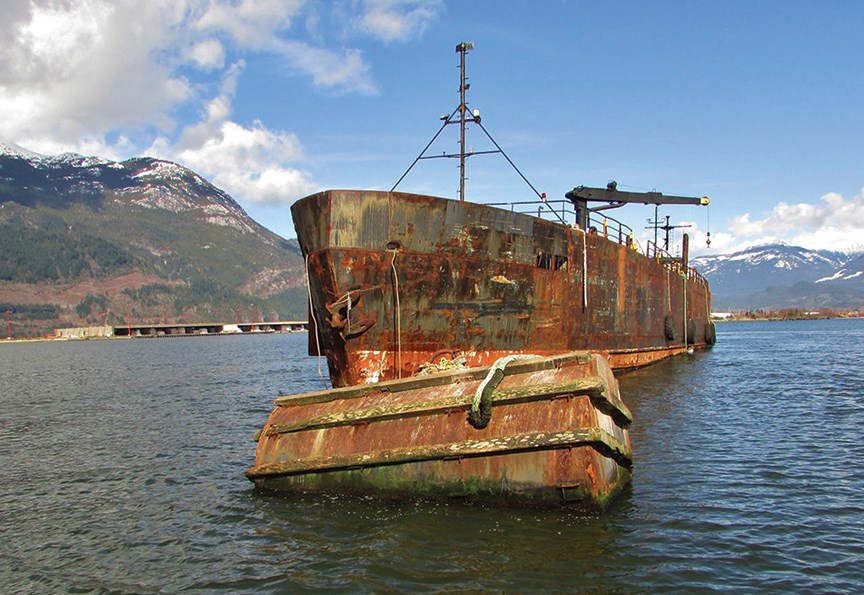Squamish’s federal representative is hoping jail time and fines of up to $100,000 will make boat owners think twice about abandoning their vessels along Canada’s coastline.
Last week, West Vancouver-Sunshine Coast-Sea-to-Sky Country MP John Weston tabled a private member’s bill targeting the increasing problem of abandoned vessels in the country’s coastal waters. The bill goes after boats that have been moored or anchored in the same area for more than 30 days without authorization or without monitoring. It also includes vessels that are anchored, moored or adrift and in danger of sinking or breaking up, obstructing a waterway or posing a serious risk to human health and the environment.
“All levels of government share overlapping interest in the problem,” Weston stated in a press release.
Transport Canada has identified 245 boats across the country that might be deemed abandoned. Squamish hasn’t escaped the problem. Last year a 59.7-metre long vessel was taken under control by order of the Canadian Coast Guard after breaking free from its mooring. District of Squamish staff has sought ways to deal with the mounting number of derelict vessels moored in the Mamquam Blind Channel.
Weston’s private members bill comes with punitive action, Squamish Mayor Patricia Heintzman said. The jail time and fines give it some teeth, she noted. The bill would also allow the government to sell seized abandoned vessels, which could help cover their costs, Heintzman said.
“You can certainly see its application to a number of areas in our water,” she said.
Ocean laws are a quagmire of jurisdictions, water lot ownerships and individual rights. While the province owns much of B.C.’s land covered by water, the ability to make laws and regulate what goes on in navigable waters is a federal responsibility.
In 2010, B.C. municipalities petitioned both levels of government to develop a coordinated, timely approach to deal with derelict and abandoned vessels. The District of Squamish is currently working on its marine strategy, which would give the district more authority over issues, according to the district.



